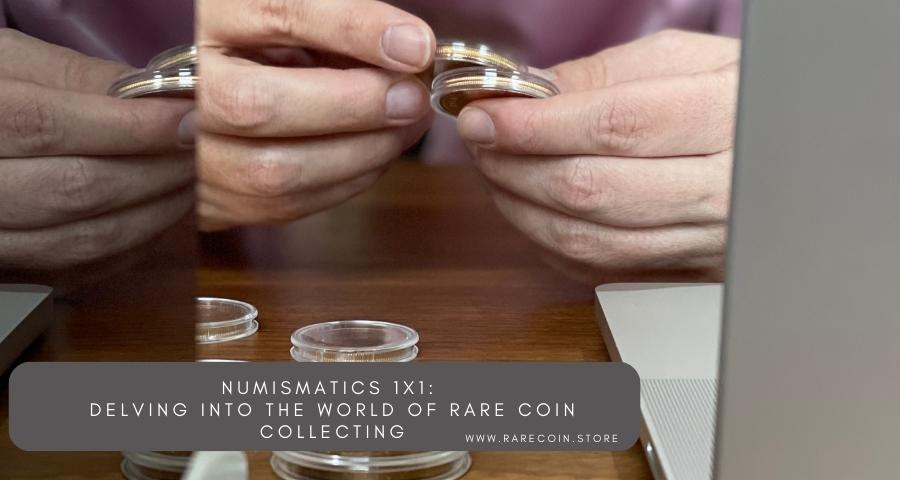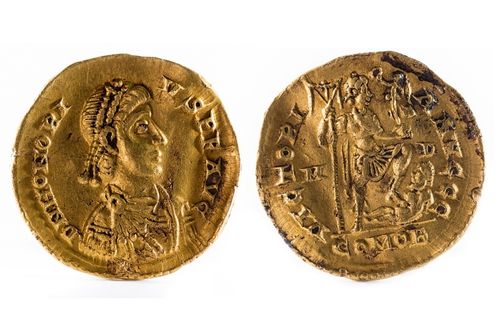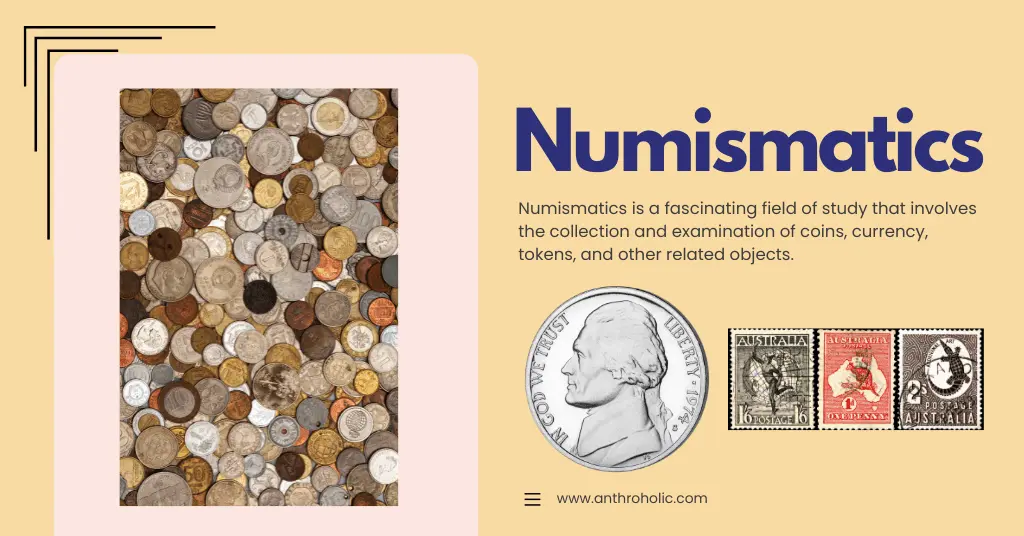Excellent Facts To Choosing Coin Grading And Banknote History
Wiki Article
How Do I Search For Global And Region Associations Within Numismatics?
This is a systematic method to conduct this type of research. Here's a method of conducting such a research:Database selection: Pick databases that are specialized in the numismatic community, for instance, websites of major numismatic society such as the American Numismatic Association(ANA) and the International Numismatic Council(INC), or regional associations such as the Numismatic Association of Australia. JSTOR and other academic databases and repositories provide access to research papers and conference proceedings.
Define Research Focus: Specify your research objectives. Do you want to learn more about the history and activities global numismatic organizations as well as regional collaborations, publications, conferences or numismatic subjects discussed in these organizations? Clarify the focus of your search.
Search Strategies: Make use of keywords such as "numismatic association", "global numismatics", "regional numismatic societies" and, if applicable, include the names of particular organizations or geographic regions. Use advanced search features to filter results based on dates, documents (such a conference papers or newsletters) and the geographic area.
Data collection access Information on the history and mission, membership publications, as well as the activities of global and region numismatic societies. Find out more about upcoming and past conferences, workshops collaboration research initiatives, etc. Access databases that include information on association leaders, members, and contact details.
Analyze data to better understand the influence of global and local society of numismatics. Analyze the ways these associations improve numismatic understanding and promote international collaborations. They also distribute their research via publications and conferences.
Cross-Reference: Verify the accuracy of your information by comparing it with other databases and resources. Examine the projects and activities of various associations to get a more comprehensive picture of regional and global developments in numismatics.
Documentation: Record your findings in a systematic manner, citing sources and highlighting the methodologies employed. Note the database's names, search terms, and the significance of each source to the research question.
Stay up-to-date: Numismatic organizations are constantly changing by publishing new publications and conferences. They also collaborate in projects. Updates on websites of newsletters, associations, databases for scholars, and association websites will keep you up-to-date with the latest developments in global numismatics.
If you follow these steps, you will be able to effectively make use of databases to research the world of numismatics and its connections to global and regional associations. This method lets you investigate the organization structure as well as the scholarly activities and collaborative efforts which shape the numismatics field at both a global and regional scale. Check out the recommended my sources on rupee for site advice including currency history, coin holder, coin club, dollar, coin mintmark, currency dealer, banknote forum, banknote magazine, banknote album, rand and more.

How Can I Utilize The Numismatics Database To Research Coin Dealers?
In order to research the dealers in numismatics and coin dealers it is necessary to use databases that provide information about numismatics, dealer listings and also the history of transactions. To conduct this type of research, here's how to conduct it: Database choice: Pick databases that are focused on numismatic listing and trade. These include online numismatic markets, dealer directories from numismatic associations (such as the Professional Numismatists Guild), databases of auction houses, and historical archives on numismatic trade.
Define Research Focus: Specify your research objectives. Are you keen to know more about the history and background of dealers in particular, market trends, pricing developments, or the impact that dealers have had on the numismatic collecting trend? Clarify your goals to help guide your investigation.
Search Strategy: Include keywords like "coin dealers,"" the numismatic market" or "dealer directories" and, if applicable include the names of specific dealers or geographic regions. Advanced search options let users to search for items by date, dealer type (such ancient coins or modern coins, as well as rare coins), and transaction type (auctions or personal sales, auctions, etc.).
Data Collection: Access comprehensive information about sellers of coins like company names, locations, specialties, or years of operation, and the history of their business. Gather details about famous dealers and their contribution to numismatic scholarship or collecting societies, as well as their participation in notable auctions and sales.
Analysis: Analyze your data to understand the role that dealers in coin play in the numismatic world. Examine how dealers influence market dynamics and collectible trends, authenticate and grade coins, and encourage numismatic knowledge through publications.
Cross-Referencing: Check your findings by cross-referencing data across several directories, databases, dealer directories auction records, and historical archives. This will ensure the accuracy and thoroughness of your research. It will also provide insights into the various aspects and contributions of coin dealers to numismatics.
Documentation - Document your research findings in a structured manner including the sources you used and noting the methods used. Record details about the databases used, search terms used, as well as the relevance of every source you use to answer your research questions.
Keep up-to-date: Auctions, new auctions and dealers entering the market, along with market trends, are continuously changing. Monitor updates from numismatic associations, auction houses, marketplaces online and other sources to stay up-to-date on the latest developments in the world of numismatics.
These steps will enable you to explore numismatics with respect to dealers in coins. This strategy allows a complete analysis of the historical background as well as market-related influences and scholarly contributions made by coin dealers to the numismatic world providing valuable insights into the practices of collecting and market dynamics over time. View the top rated banknote value for website examples including coin dealer, legal tender, coin album, banknote club, coin die, coin show, coin holder, franc, ringgit, authenticity and more.

How Can I Research Numismatics With Respect To Auction Houses Using A Database?
This type of research requires databases that concentrate on historical sales data and the expertise of auction experts. This is a structured way to conduct this research. Examples of online auction platforms are Heritage Auctions (Stack's Bowers Galleries), websites for auction houses and numismatic databases that store auction results.
Define Research Focus: Specify your research objectives. Are you interested in learning about the values of specific coins, the latest trends in numismatic collecting or the impact auction houses exert on the market? Or are you curious about the historical significance auctions hold in numismatic scholarly study? Find out what you're looking for to help guide your research.
Search Strategy: Make use of keywords, for example "numismatic auctions," auction catalogues of houses," coin auction results," and if applicable the auction house's specific or geographic region names. Utilize advanced search options to filter results by date or type of coin. Additionally, you can choose auction categories, such as old coins, modern coins, and paper money.
Data Collection: Access information on auction house catalogs and sales records. Gather information about auction dates, lot descriptions as well as condition reports on coin images and price realized. Search databases for auction archived results as well as catalogs for a thorough analysis.
Analysis: Analyze the data to understand the patterns and dynamics of the market in the field of numismatic collection. Analyze the market value of coins that are rare, the pattern of auction activity, and the impact that auction house expertise has on the appraisal and attribution of numismatic pieces.
Cross-Reference: Check the validity of your study by comparing data from multiple auction house databases and numismatic publications. You may also look up the archives of auctions from the past. This will ensure that the research you conduct is accurate and complete, providing you with an accurate picture of the ways in which auction houses have done to numismatics.
Documentation: Document your findings systematically, citing sources and highlighting the methodologies employed. Record details about the databases used, search terms used, and the relevance of every source you use to answer your research needs.
Keep yourself updated. Auctions for numismatics are dynamic nature with records and sales constantly being broken. For the latest developments in numismatic values and trends in auctions, stay up with the latest news from auction house websites and societies for numismatics and databases of specialized auction results.
You can use databases to investigate numismatics as it relates to auction houses, by following these simple steps. This method allows for a thorough analysis of market dynamics, historical sales figures, and the expertise of auction specialists who shape the numismatic collection landscape. Take a look at the top rated commemorative coins for website tips including bullion, quarter, engraving, coin display, coin blank, banknote rarity, coin holder, coin society, engraving, coin society and more.

What Can I Do With The Database To Look Up Numismatics With Regards To Publications And Journals?
For numismatics research in journals and publications, databases that specialize on numismatic publications and articles such as historic publications, and academic journals are the best. It is a method that can be structured to do such research. Database Selection: Choose databases that focus on publications, numismatic journals and scholarly papers. These include databases that are online, such as JSTOR, Google Scholar, numismatic society journals (such as the American Numismatic Society's publications), and library catalogs with numismatic collections.
Define Research Focus: Specify your research objectives. You might be interested in numismatics history and specific coin types or periods. Find out what you're trying to find in order to guide your search.
Search Strategy: Use words like "numismatics," "numismatic publications," "numismatic journals," and include specific topics or coin types (such as old coins medieval coins or modern coins) If applicable. Use advanced search to filter results based on publication type, dates (articles or books) and author affiliation and the type of publication.
Data Collection: Get information from numismatic magazines and publications. Look up information on articles such as abstracts, titles, authors and titles. Also, gather the dates of publication and bibliographic information. Look for databases that offer full-text access to articles, or digital archives of historical numismatic publications.
Analyze data to identify scholarly contributions in numismatics and the prevailing trends. Examine the methods used in numismatic research, the interpretations of the iconography and symbols used in coinage, numismatic cataloging standards, and the development of numismatic research over time.
Cross-Reference: Verify the accuracy of your research by comparing data from various databases, numismatic publications catalogs, library catalogs and other institutional repository. This guarantees the accuracy and completeness of your research and gives you insight into the depth and breadth of numismatic literature.
Documentation - Record your findings in a systematic manner including citations to the sources as well as noting the methods you've used. Provide the databases you utilized as well as the search term(s) employed, and the significance of each source to your question.
Numismatic research continues to develop as new discoveries and interpretations are made. Updates from numismatic organizations, academic journals as well as scholarly databases and other resources will help you stay up-to-date on the newest research and publications.
Databases can be used in a way that is efficient using these methods. This technique lets you explore the historical and scholarly insights, research methods, and numismatic insights that are provided by the numismatics literature. Take a look at the top rated lowest price on money for website advice including dinar, currency collecting, coin appraisal, austrian coins, coin value, coin album, banknote album, banknote forum, coin production, coin dealer and more.

What Can I Do With An Online Database For Research Numismatics Specifically In Terms Of Industry Trends?
Here's a systematic approach to conducting such research:Database Selection: Select databases that are specialized in market research reports, industry analyses and expert opinions or publications from the numismatic society. An organized approach is given to conduct this kind of research. Selecting a Database: Select databases that are specialized in industry research, market analysis and numismatics journals. Some examples include platforms for market research like Mintel or IBISWorld; numismatic society publications along with industry-specific databases as well as business news sources.
Define Research Focus: Specify your research objectives. Are you interested in learning about current numismatic trends, collectibles that are emerging and technological developments in the field, aspects that affect the value of coins or changes to regulations which affect numismatic firms and companies? Clarify the focus of your search.
Search Strategy: Make use of keywords such as "numismatic trends in the industry,"" "coin market analysis of collecting," "emerging trends in Numismatics" and include specific subjects (ancient coins contemporary paper money, coins) or keywords relevant to your research query. Utilize advanced search options to filter results by the date, industry sector and the type of publication (reports and articles, or market analyses, etc.).
Data Collection: Gain insights on numismatics and the latest trends in the industry. Gather details such as market research reports on trends in coin collecting and articles on technological advancements (like digital cataloging tools, authentication technologies) Expert opinion on market trends, and economic analyses impacting the market for numismatics.
Analysis: Examine information to discover the main trends shaping the industry. Study market dynamics, including shifts in the preferences of collectors (historical eras, themes) and technological advancements, and the influence of global economic conditions.
Cross-Referencing - Verify your findings with information from multiple databases, market-research reports, publications of society for numismatics, and also articles about analysis of the industry. This guarantees accuracy and completeness in your research, providing an extensive view of market trends and information.
Documentation - Document your findings in a systematic manner including sources and the methods you used. Note down the names of databases, search terms and relevance of each source in relation to your research.
Stay up-to-date: The numismatics industry is always changing, as are the current trends. This includes market changes, trends in collecting, as well as technological advances. Keep track of updates from market research and numismatic publications, as well as reports on the industry and its reports.
Following these steps, you'll be able to effectively make use of databases to research numismatics in relation to industry trends and information. This will allow you to gain an understanding of market dynamics as well as capturing preferences. Additionally, you will be able to learn about the latest technological advances and economic factors that affect the numismatic field. Have a look at the top rated coin errors blog for more tips including banknote forum, currency society, obsolete currency, peso, quarter, banknote identification, banknote album, coin magazine, banknote forum, denomination and more.
